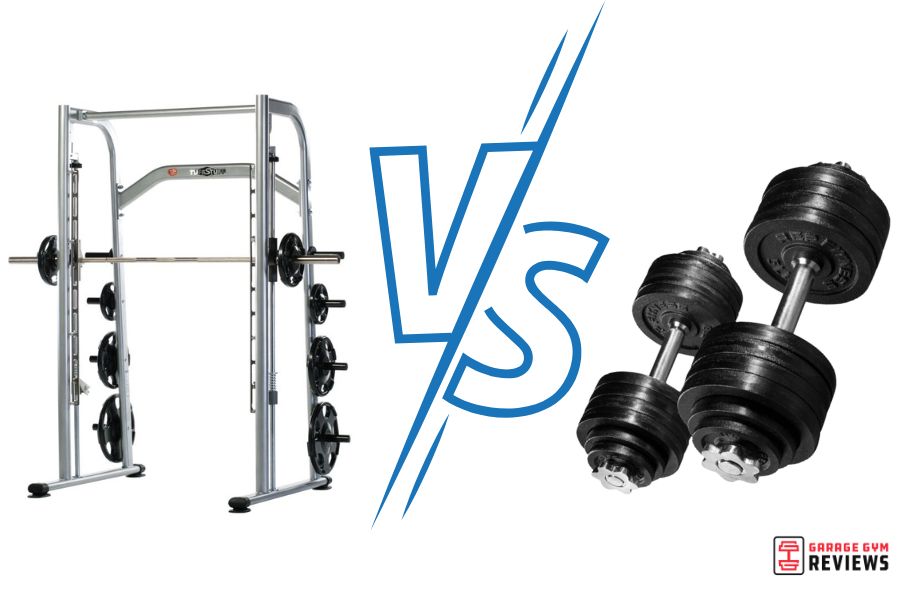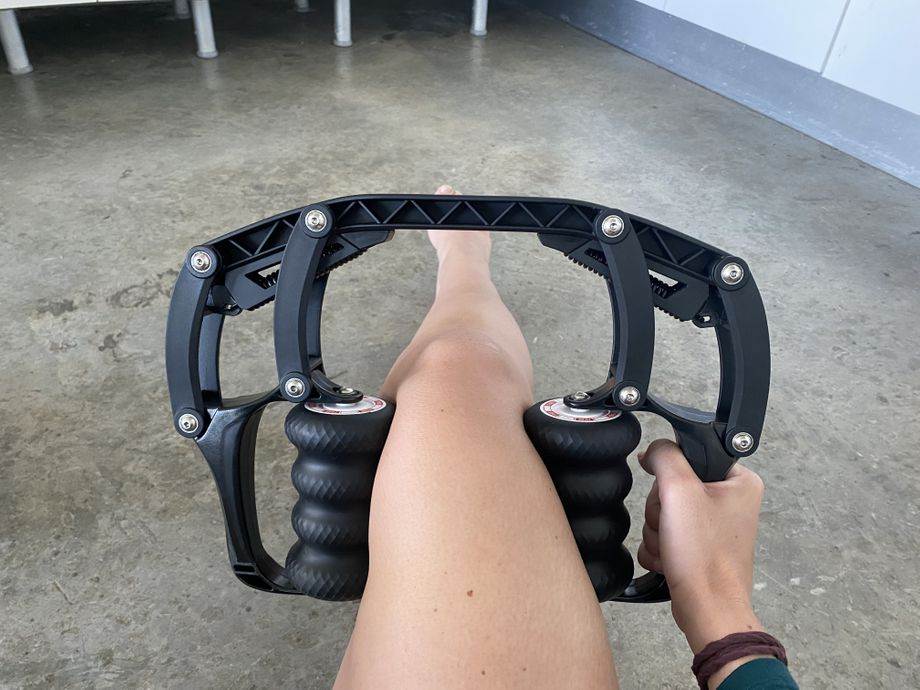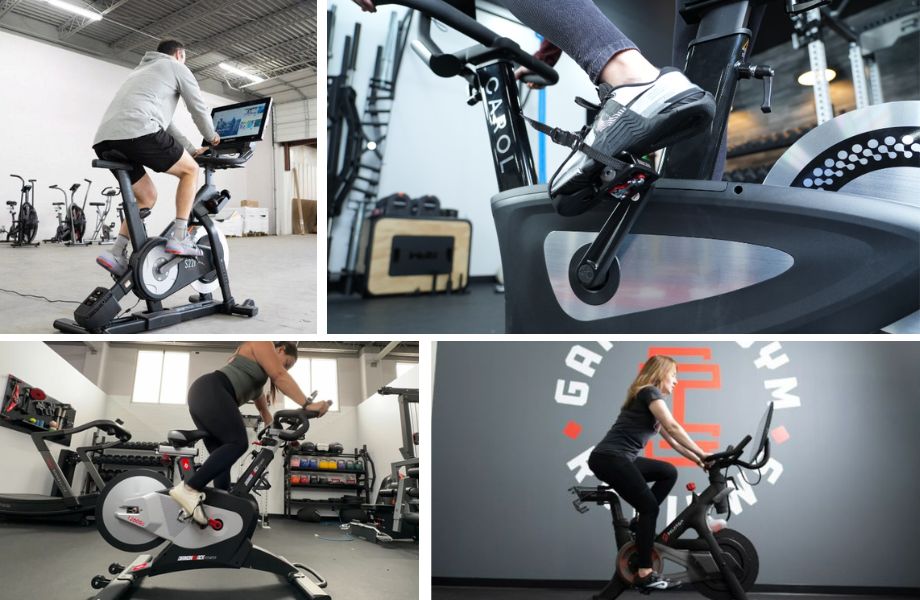Whether you are at the gym or on the construction site, the proper tools matter. A hammer is not a screwdriver is not a drill gun. And so it is when considering using the Smith machine vs free weights.
While many a beginner has confused a Smith machine with a squat rack, they each serve entirely different purposes in your journey toward building muscle. Here, we’ll break down what each of these options is as well as weigh the pros and cons of each.
A Quick Look: Which One Is Better?
Free weights include dumbbells, barbells, and kettlebells. A power rack and barbell are the foundation of any home gym or training facility. Free weights provide the most versatile and effective strength training workouts1.
A Smith machine should be looked at as specialty equipment and may only comprise 10-20% of your workout.
The main considerations between the two are:
- The Smith machine’s fixed range of motion versus the “sandbox RPG” freedom of free weights
- The high cost of the Smith machine versus the more budget-friendly free weights
- The ubiquity of free weights set against the relative scarcity of Smith machines in modern gyms
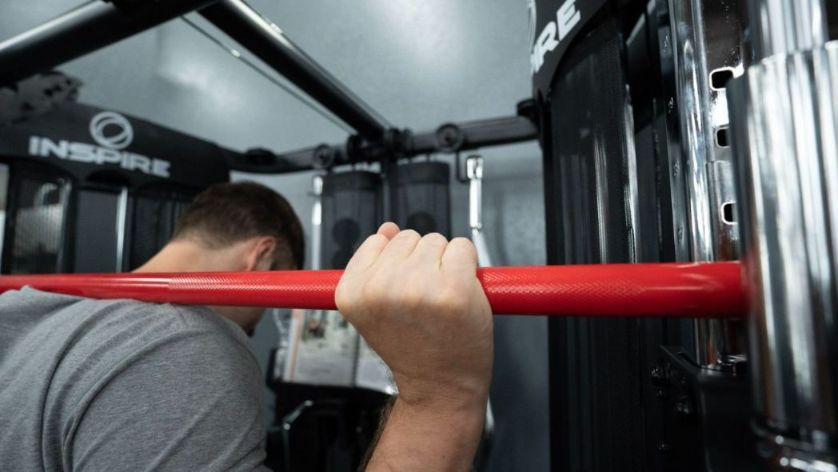
What Is a Smith Machine?
A Smith machine is a lot like a barbell set inside a power rack, except it’s on rails. The bar path is determined by the rail setup, not by your muscles. Despite its looks, the Smith machine has more in common with a leg press machine than a power rack.
Rather than being totally vertical, Smith machines are slightly angled to provide a better feeling. Most of the machines I’ve seen have a 7-degree angle, but they can go as high as 12 degrees.
This vertical range of motion, set with a standard feeling barbell, can allow lifters to mimic many of their favorite free weight exercises. The design of the contained self-racking system is supposed to provide a safer resistance training2 experience than those scary multi-colored bouncing weights.
Many Smith machines are also counterbalanced to give the bar a lighter feel (and aid in ego lifting).
RELATED: Best Smith Machines
Benefits of a Smith Machine
There are several reasons you may opt for a Smith machine over free weights:
Muscle Isolation
Like all machines, the Smith machine can help you isolate a muscle much more easily than with free weights. A free weight squat, for example, will tax your upper back, hamstrings, glutes, and quads. But with a Smith machine, you can focus on just getting a quad pump by leaning back into the bar, setting up almost like you would for a hack squat machine or leg press.
Support and Safety
The Smith machine can also be great for high rep bodybuilding type exercises like rows or stiff-legged deadlifts. Without the distraction of worrying about having heavy weight on a bar, you can really focus on having a mind-muscle connection and just contract rather than lift.
Also, a Smith machine has built-in safety mechanisms to prevent you from losing the weight and allowing for easier bar racking. The range of motion on a Smith machine is limited by its construction, making it a good choice for working specific muscle groups (like doing a partial range of motion seated shoulder press to really smash the front deltoids).
Simplicity
My favorite Smith machine exercises don’t even involve any moving parts! Horizontal rows (like a pullup but you hold onto the underside of the bar in an upside down plank and pull to your chest), rear leg elevated split-squats with one leg on the bar (it’s like a fancy lunge), and using the static bar as a hurdle for mobility warm-ups are all common uses.
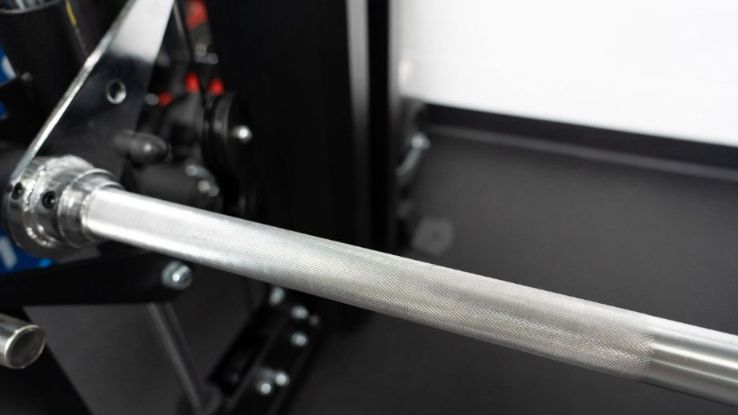
Disadvantages of a Smith Machine
With the good comes the not-so-good:
Limited Range of Motion
While having a limited range of motion is great for isolation, many people prefer being able to freely move with weight. A traditional back squat from a squat rack is much different from a back squat on a Smith machine because of how narrow the movement becomes on the Smith machine.
Safety Overkill?
For a machine designed to be a safer alternative to free weights2, it sure is the star of a lot of “gym fails” videos. The Smith machine has an integrated racking system that allows you to spin the bar and rack it immediately, but with the multitude of power rack self-spotting systems now available, the Smith machine’s system seems a bit arcane.
Hard to Bail
With a free weight squat, a lifter can be taught how to bail out and drop the bar behind them, or dump it over their head, if the weight is too heavy. Front squats are even easier to dump (make sure to use bumper plates to avoid angry gym owners). Unless you can throw the entire machine over your head, dumping a Smith machine squat is out of the question.
Likewise, a Smith machine bench press can result in trapping yourself under the bar. When your triceps give out and you fail on a free weight bench press (assuming you have not availed yourself of the numerous self-spotter options) you can usually roll the bar down your body and get out (yes this sucks, but it’s better than staying there like a modern-day Giles Corey). You can also use the old trick of not putting collars on the end of the bar and shimmying the weights off (I think this is way more dangerous than rolling the bar, but to each their own).
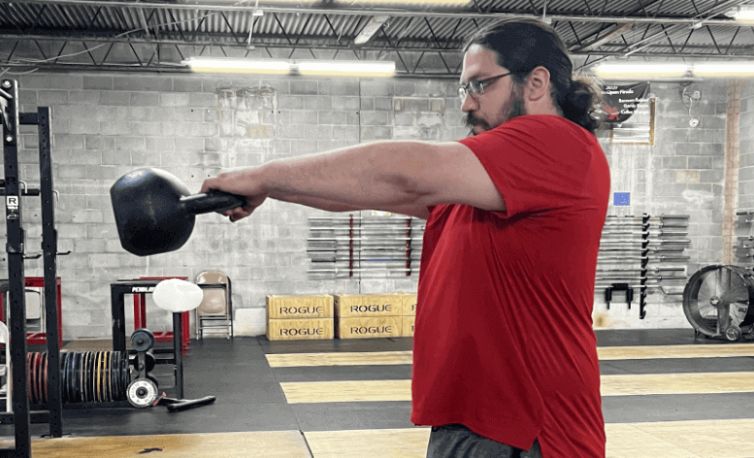
What Are Free Weights?
The term free weights encompasses the entire genus of barbells, kettlebells, dumbbells, and any other kind of weighted object you can move through space unencumbered.
The free weight bench press is among the most popular exercise movements in America. Whenever you watch a movie with a character who is supposed to be into weight training, they always have a bench press rack in their apartment.
Benefits of Free Weights
Where do we start? Let’s dive in:
Proven Muscle Building
Nothing builds muscle faster or more efficiently3 than free weights. Heavy back squats, deadlifts, strict overhead shoulder presses, and bench presses are the foundation of almost all strength training programs.
Train More Muscles
The biggest difference between free weight exercises and Smith machine exercises involves the activation and usage of stabilizer muscles1. With free weights, your abs, obliques, upper and lower back, and a whole host of tiny muscles they haven’t made selectorized machines for, need to keep the bar in place.
Meanwhile, the Smith machine holds the bar in place for you. This is why the back squat is referred to as a full-body movement, and a leg extension is just for quads. With the rise in the popularity of powerlifting and CrossFit in the past two decades, more gyms than ever have more power racks than cable cross machines.
Affordability and Portability
If you’re looking to purchase either free weights or a Smith machine for your home, free weights for the win. They are smaller and easier to store, and they are likely much cheaper than a Smith machine.
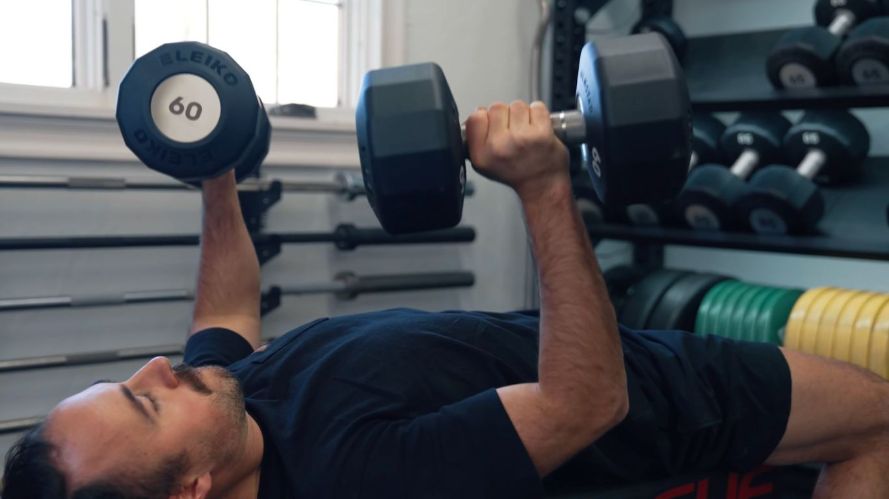
Disadvantages of Free Weights
While we love using dumbbells and kettlebells, there are some considerations to make:
Proper Technique
Things like barbell squats and weightlifting movements like the hang-clean are among the best choices for building muscle and strength, but they come with a time cost. Learning proper form for these free weight exercises can be a lifelong pursuit, making the chest press machine an attractive replacement for the bench press for beginners.
Injury Considerations
Working around injuries can be harder with free weights. Machines can let you focus on training uninjured muscle groups while leaving them dormant, or ease the weight back and take the injured body part through a safe range of motion without stronger muscles taking over.
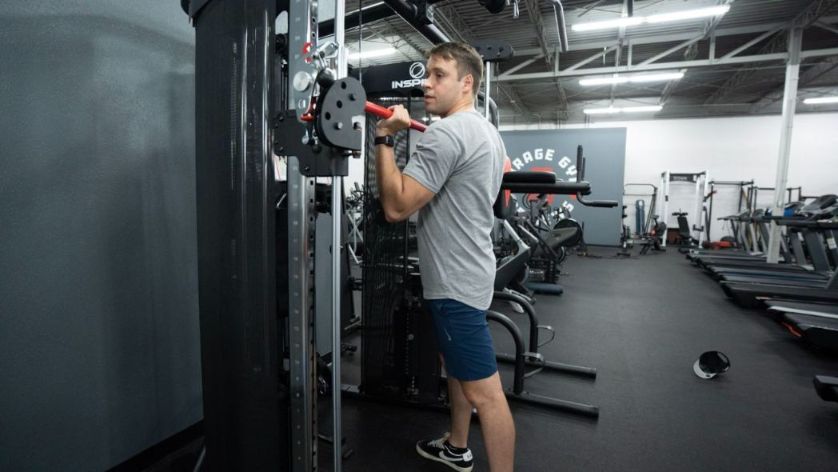
Should I Use a Smith Machine or Free Weights?
Life lessons typically all revolved around using “and” phrases rather than “or” phrases. There is a time and a place for almost everything in training. However, there may be more times and more places for certain things.
The power rack and barbell combo is the king of the gym for a reason. If you are healthy and have no significant movement restrictions, free weights win out most of the time.
A Smith machine is best for:
- Working individual body parts
- Working around an injury or mobility issue
- Adding variety to hypertrophy training
Free weights are best for:
- Meat-and-potatoes strength training
- Functional lifting
- Home gym owners
Smith Machine vs Free Weights: Q&A
Is a Smith machine harder than free weights?
Anything can be harder or easier depending on how it is dosed. Neither the Smith machine nor free weights are magical muscle activation devices.
For example: squatting with a maximal weight is really hard, but doing 20 slow concentric reps of Smith machine squats is also brutal on your lower body. It’s all in how you use your tools. Many people, however, find transitioning between the two to have its challenges, as you move from a limited range of motion to a potentially unlimited range of motion.
Can you build muscle with Smith machines?
You can build muscle with any kind of resistance training, even your own bodyweight. A Smith machine is more useful for accessory type movements than the main compound movements you use with heavier weights.
How much lighter is a Smith machine than free weights?
The Smith machine is counterbalanced to give the bar a lighter feel (especially at the top of a lift), but trying to compare a Smith machine bench press to a barbell bench press is apples and oranges (and trust me when I say nobody cares how much you bench on the Smith machine).
People love doing heavy shrugs with the Smith machine, partly due to the counterbalance and partly because you don’t actually have to lift a heavy weight.
Is it better to workout with machines or free weights?
It’s Zeppelin vs. The Stones. Personally I hate the Stones.
Injuries aside, free weights offer a more complete workout, but they can also take a heavier toll on the body. Machines offer a restricted movement pattern that tends to not load the spine as heavily. If you want to get out of a gym day is a sick upper body pump, there’s nothing wrong with using machines to achieve that.
References
1. Schwanbeck S, Chilibeck PD, Binsted G. A comparison of free weight squat to Smith machine squat using electromyography. J Strength Cond Res. 2009 Dec;23(9):2588-91. doi: 10.1519/JSC.0b013e3181b1b181. PMID: 19855308.
2. Grier T, Brooks RD, Solomon Z, Jones BH. Injury Risk Factors Associated With Weight Training. J Strength Cond Res. 2023 Feb 1;36(2):e24-e30. doi: 10.1519/JSC.0000000000003791. PMID: 32796416.
3. Ebben WP, Feldmann CR, Dayne A, Mitsche D, Alexander P, Knetzger KJ. Muscle activation during lower body resistance training. Int J Sports Med. 2009 Jan;30(1):1-8. doi: 10.1055/s-2008-1038785. Epub 2008 Oct 30. PMID: 18975260.


